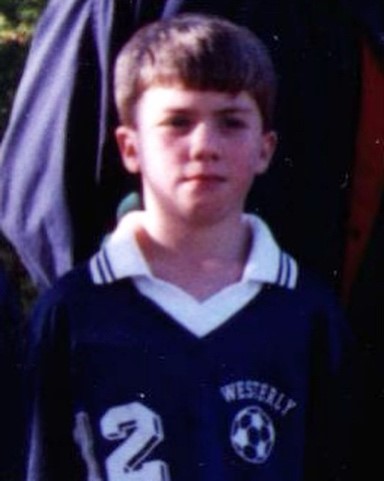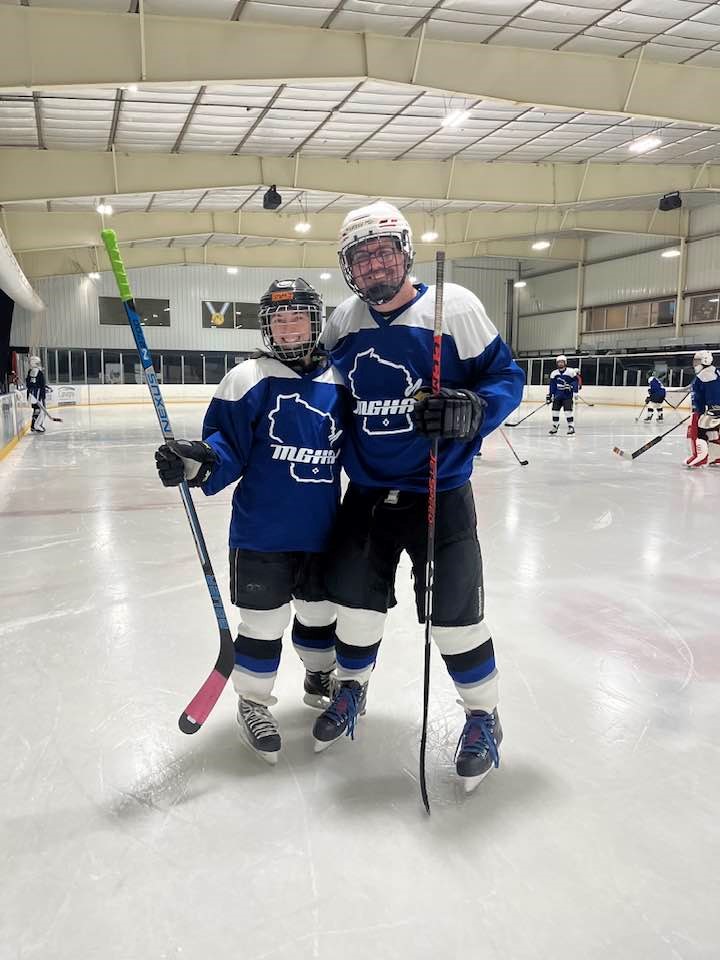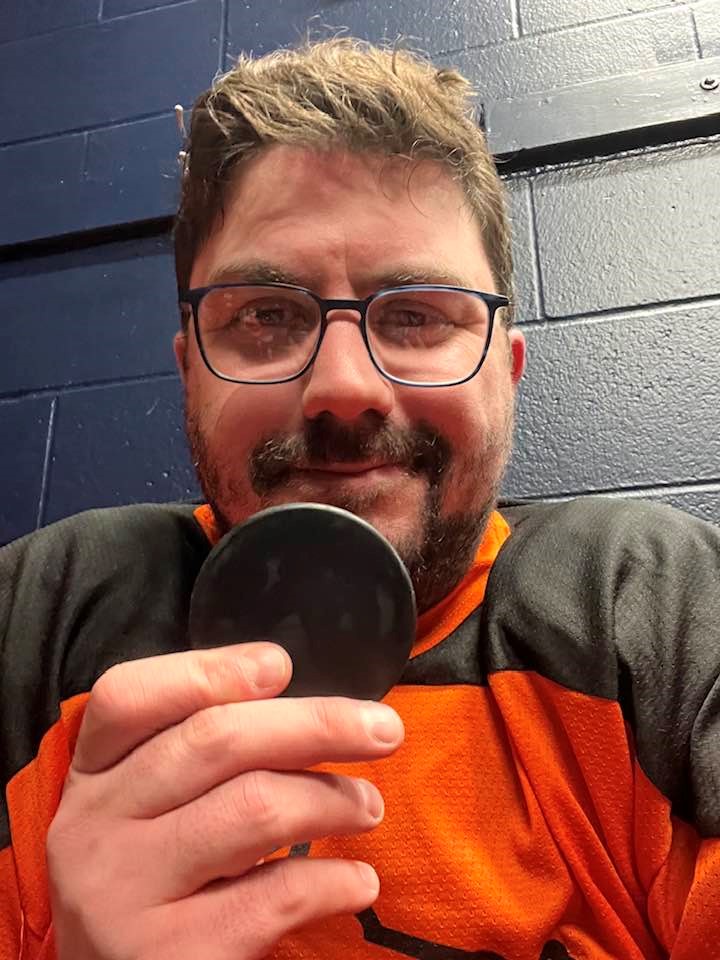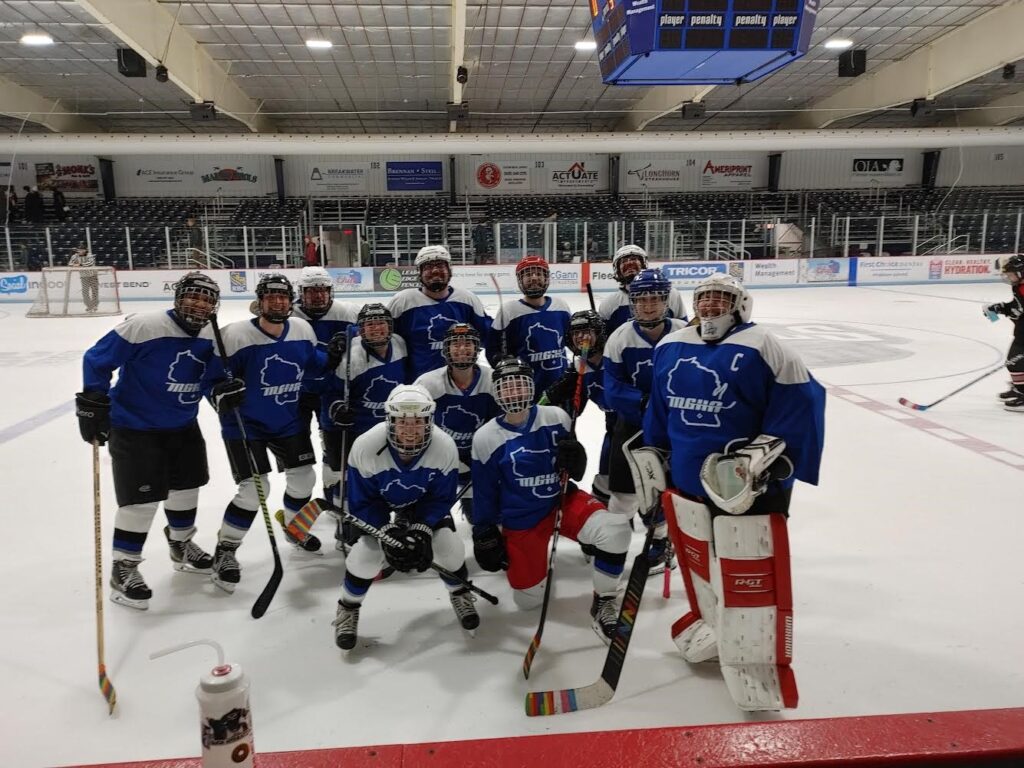“You play hockey?”
As an overweight 42-year-old mother of two, I often get this question when I talk about my hobbies. The look of surprise then fades, and the next thing most people say is “That’s awesome!”
Yeah. It is.
So how did I get here? And (given the title) what does it mean to me? Let’s get into it!
My little brother played hockey when we were growing up in Minnesota. I was busy with my own things at the time, like band and speech team and softball and theatre, so I left him to it and never imagined myself as a hockey player.
Fast-forward 20 or so years, and one day I got the call from my mom that my brother, a Green Beret, had been killed in action in Afghanistan.
My world shattered. Our parents, my sister, everyone who knew him: All of our worlds shattered. And I struggled to pick up the pieces for a long, long time. I was hospitalized for suicidal ideation, and it served as a wakeup call that got me into therapy, where I learned to feel my feelings no matter how difficult they were.
Eventually (putting the “G” in “MGHA”), I realized that some of those feelings were super gay. And that’s how I finally figured out my sexual orientation at age 37: by doing the serious self-examination that helps people grow after a tragedy. My therapist once called it Adam’s final gift to me.
This self-discovery meant that I had to end a 15-year marriage to someone I loved. We had to tell our kids that we were getting a divorce, and to this day it’s one of the hardest conversations I’ve ever had. It was an incredibly painful time in my life, but as is often the case, it was also one of the periods when I grew the most as a human and started to connect with my own story.
I learned to survive in a world without Adam, and I slowly learned more about who I was. Over the years, I had let myself fall into the trap that many parents do, where I was only doing things for other people and had nothing to call my own. I’d drive my kids around to their activities and wish I had something that was just mine. At the time, that wish felt selfish, but now I can see that it was probably healthy. In any case, it put me in a place where, when my friend Nick encouraged me to join the MGHA, I was ready to say yes.
It wasn’t long into my first season with the MGHA that I came to realize what a uniquely supportive community it is. My mentor Ingrid and my captains Trisha and Erik all helped set that tone, and so did pretty much everyone I came into contact with in the league. I learned at my own pace (fittingly glacial) and my then-girlfriend (now wife) told me that my skills improved drastically from the beginning of the season to the end.
My first year was an overwhelmingly positive experience. I focused on learning something new each game, even something small like climbing over the boards, so that I could celebrate those small wins. I was able to connect with my team, the league at large, and once again – myself. I loved having something to call my own. I loved talking about hockey and the MGHA to anyone who would listen, and I still love it to this day.
Once I forged those connections and realized that these were my people, I took advantage of the many opportunities to get more involved with the league. I applied for membership and volunteered to join the recruiting committee. Then I received an email asking if I wanted to be a captain. Of course I instantly wrote back saying it must be a mistake – me, a captain? I loved hockey, but I was still objectively terrible at it!
Eventually, I decided to jump in and see how I could help the league as a captain. I joined the Orange Crush team and was paired with Rob, who is an excellent hockey player and coach. I still didn’t have much in the way of technical skills, but the MGHA is so special in how it allows people to flourish and find their own unique style. I helped out with moral support, communication, keeping good vibes going in the locker room, and anything else I could contribute. It enabled me to connect in new ways with my own talents, as well as with people like Rob who balanced me out.
Our team didn’t win many games, but you would never know it if you’d come into our locker room after a loss – I’ve never been part of a team with that much of an upbeat attitude. It was a fantastic season: Everyone grew in terms of hockey knowledge, we were truly able to connect as a team, and it helped me learn even more about who I am as a person and a leader. To this day, when I look at that captain’s C on my jersey, I feel an overwhelming sense of pride.
The moral of the story is: If you want to start playing hockey at age 40, you can! If you want to be a captain even though you can’t skate backwards or do a perfect hockey stop, you can! Again, there are so many opportunities to get involved with the league.
In the end, gay hockey, for me, is a way to connect with my brother who’s no longer with us. It’s a way for me to connect with the parts of myself that I kept hidden for so long. And it’s a way to connect with amazing people who all promote the MGHA Way. It’s a beautiful rainbow connection that makes the MGHA an important part of my life and the lives of so many others.
“You play hockey?”
Hell yeah I do.




